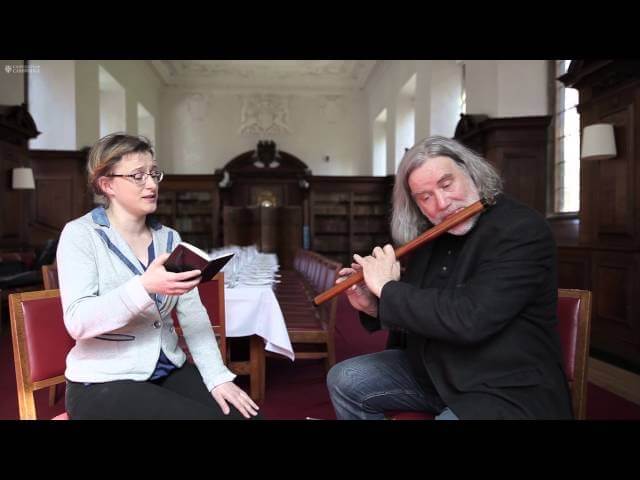Here’s what some lost music from the 11th century probably sounded like

If a melody from the days before sound recording survives into the modern age, more or less intact, it’s generally because someone had the foresight to write it down. In the case of what is now termed classical music, that someone is typically the composer. Musicians are used to reading from sheet music written on a stave, the five parallel lines with dots, circles, and other little squiggles printed on them. But that kind of notation has really only been around for the last thousand years or so. What about the music composed before then? Is it lost forever? Not quite. Songs were largely passed on through aural tradition in those days, but there is some proto-sheet music from that era as well in the form of neumes, a sketchy notation written in a now-baffling code. According to an article by Michelle Starr, a scholar from the University Of Cambridge named Sam Barnett has been laboring for decades to decipher those neumes so that the songs locked within them may live again. Specifically, he’s been working on a collection of songs based on Latin poetry. Rediscovered in 1840 in Germany, these have been dubbed The Cambridge Songs. Recently, with help from medieval-focused musician Benjamin Bagby, The Cambridge Songs were performed for the first time in centuries. Here, take a listen.
And here’s another:
One interesting factor about these selections is that they are based on verses from The Consolation Of Philosophy by Boethius. If that name rings a bell, even for non-philosophy majors, it may be because Boethius is a key inspirational figure in John Kennedy Toole’s satirical novel A Confederacy Of Dunces, and a copy of The Consolation Of Philosophy is a crucial prop in that convoluted story. If Confederacy protagonist Ignatius J. Reilly were real, this music might be exactly the kind of entertainment he would seek out in refuge from the horrors of the modern world.
[via CNET]